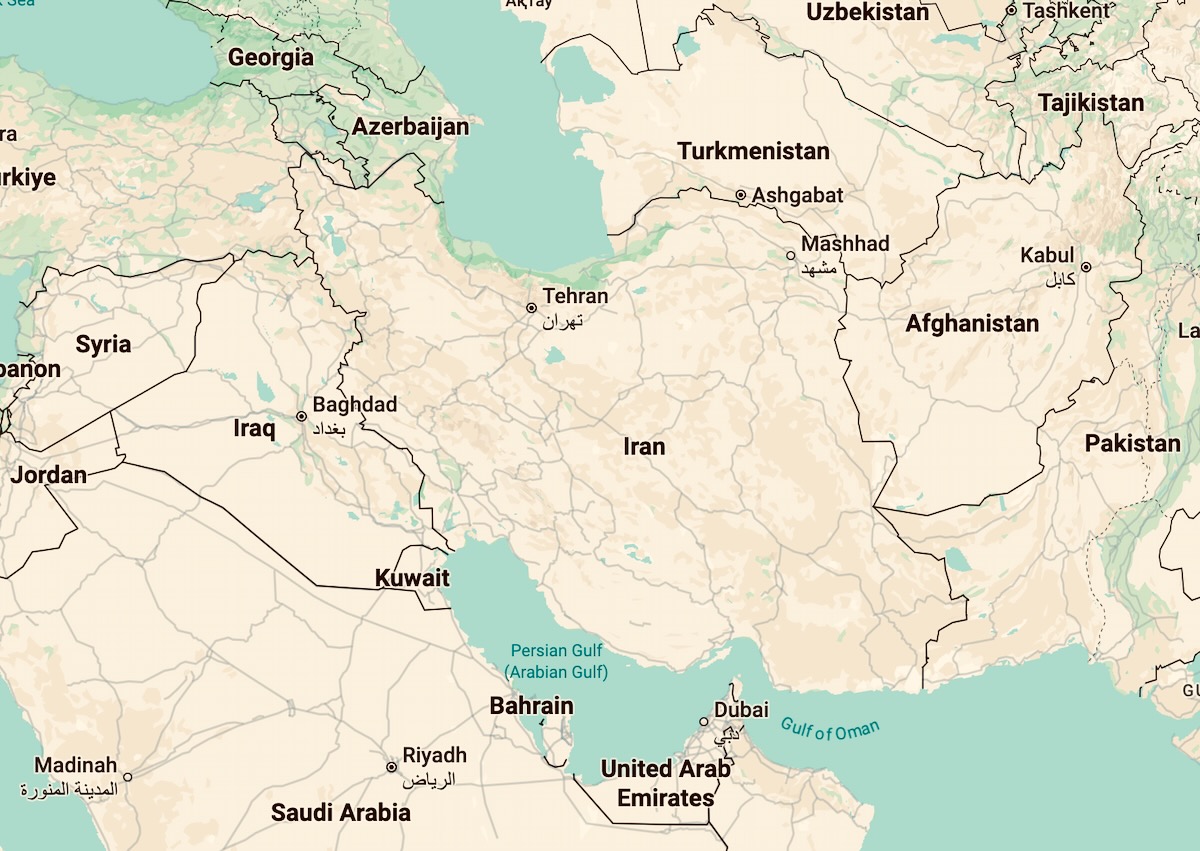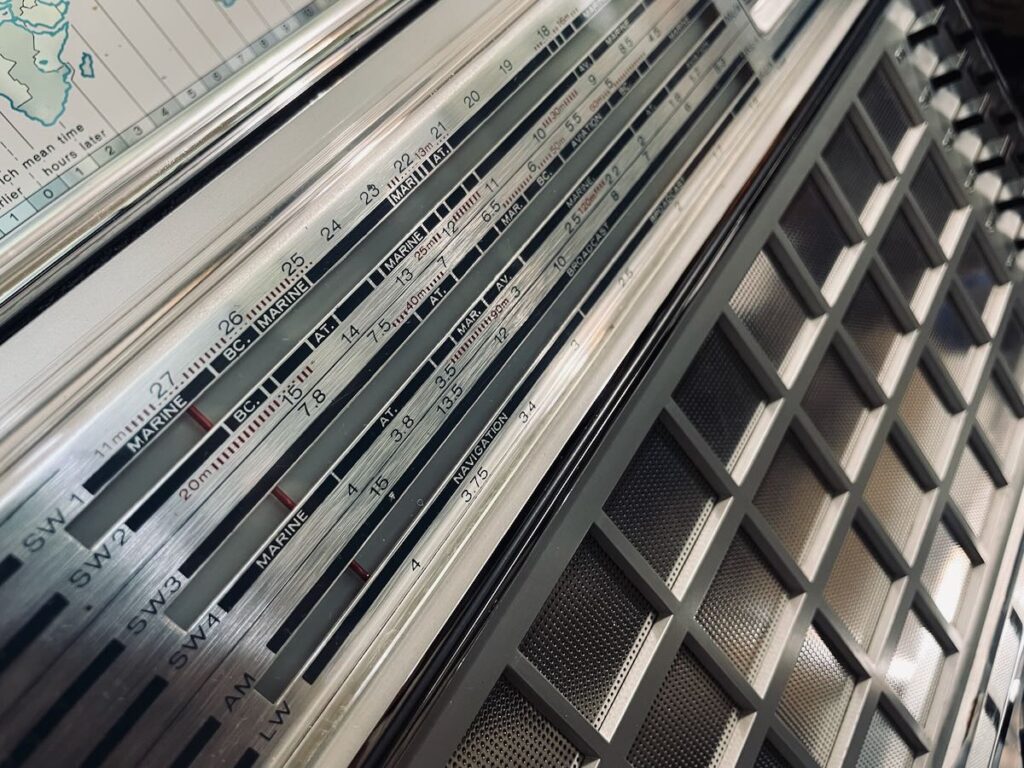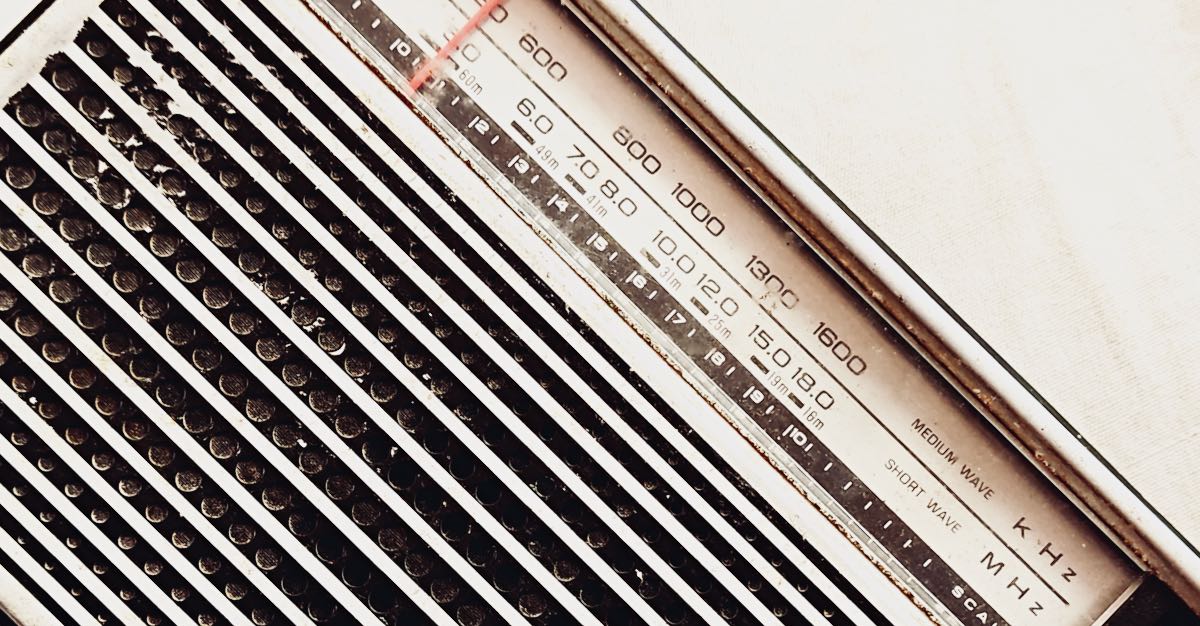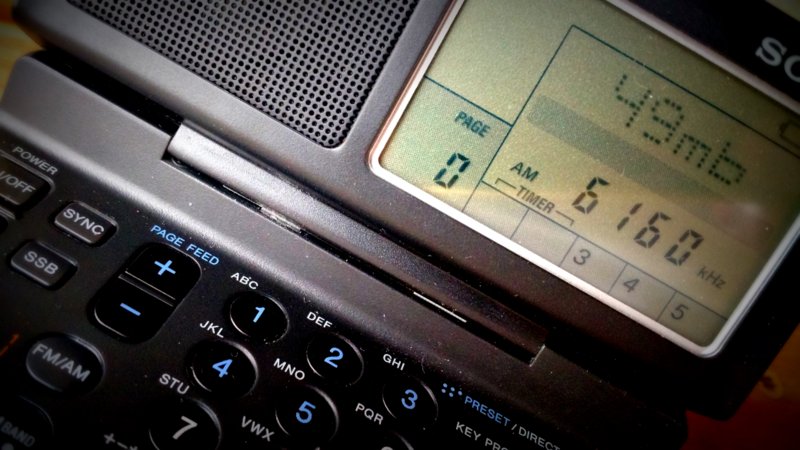Many thanks to SWLing Post contributor David Iurescia, who shares an article from Radio Prague outlining how Radio Farda continues to report on protests in Iran despite aggressive censorship, internet blackouts, and significant risks to journalists and sources on the ground. Operating from Prague as part of Radio Free Europe/Radio Liberty, Radio Farda works creatively and persistently to gather and verify information under extremely challenging conditions, providing independent Persian-language reporting that remains a crucial lifeline for audiences inside Iran—and an important window for listeners and readers around the world.
Tag Archives: Why Shortwave Radio
Pedro’s Report from Madrid During the Blackout
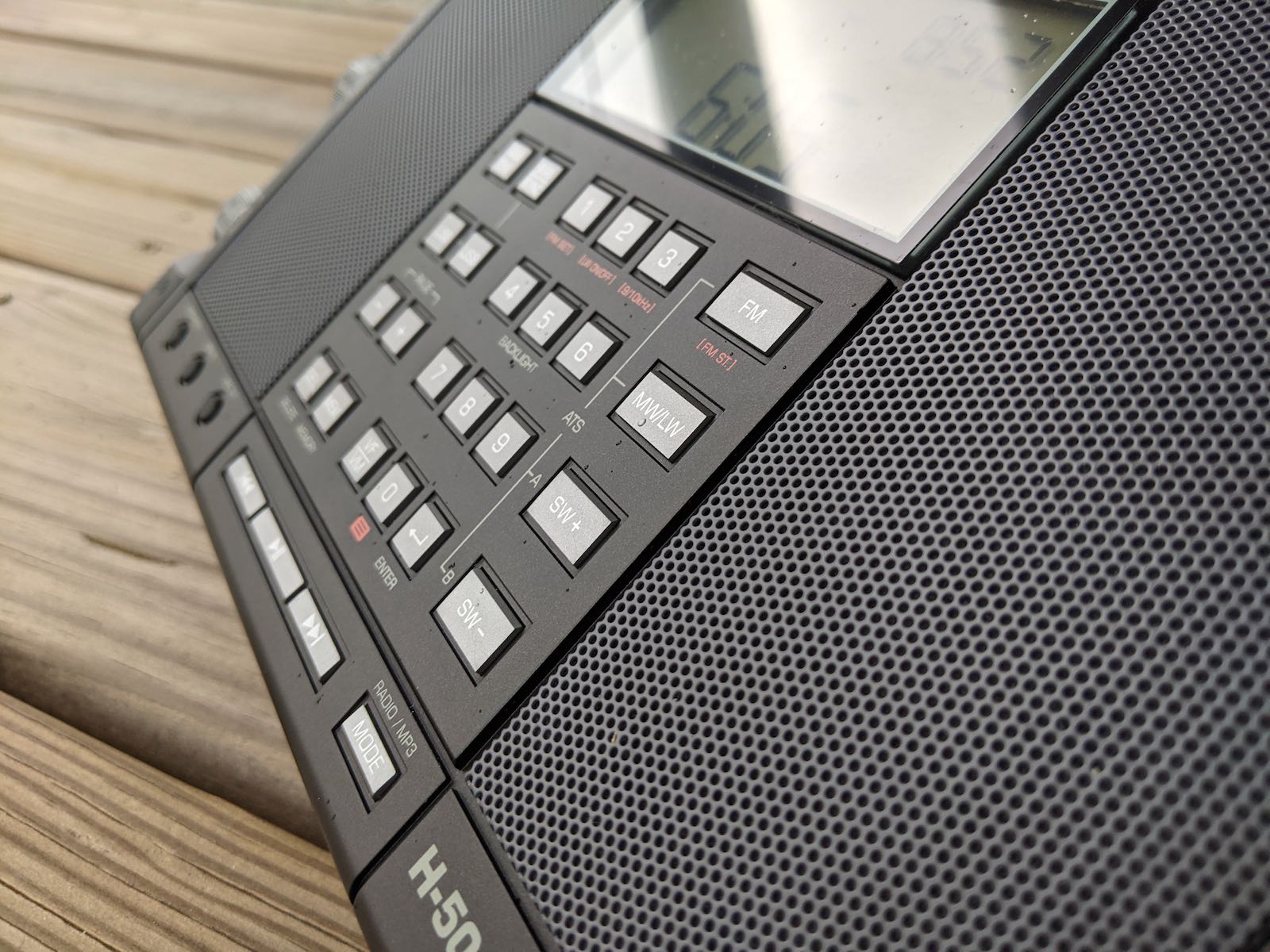 In the comments section of this recent post about the massive blackout in Europe, SWLing Post contributor Pedro Moreno shared an insightful firsthand account from Madrid. He captured the value of radio during a communications outage so effectively that I wanted to give it more visibility by highlighting it in its own post:
In the comments section of this recent post about the massive blackout in Europe, SWLing Post contributor Pedro Moreno shared an insightful firsthand account from Madrid. He captured the value of radio during a communications outage so effectively that I wanted to give it more visibility by highlighting it in its own post:
Listener Report from Madrid During the Blackout
By Pedro Moreno
I live in Madrid, and yesterday, after the blackout started, I began to wonder if this was due to a problem with my home electrical installation. Then I expanded my research outside my home to the community premises and discovered that there was a mains shortage as well. So I went further afar and came out to the street to note that there were no noises of electrical tools, and most of the people walking in the street were absorbed looking at their phone screens—only to see there was no data connection.
So I came back home and took my Tecsun H501x radio to scan, first on the FM band, just to find out there were some missing stations—for instance, RNE1, RN2, RN3, and Radio Clásica, also a Spanish government broadcaster. Then I knew there was something really bad going on.
Next, I switched to the 7100 kHz band in LSB/USB, where some Spanish radio enthusiasts were commenting on the blackout. There, I found out the blackout was going on in Portugal, Spain, and France. Also, a German radio amateur was commenting on his station about a “blackout in Spain, Portugal, and France as well.” So then, I knew what was going on.
Then I began to search for more information, scanning up and down all the shortwave spectrum looking for more information regarding what was causing the blackout—alas, without finding any specific information about the causes or the expected time for the restoration of the power supply. But I noticed something really new and surprising: the shortwave noise across all the bands was gone, and I could tune into a large number of commercial and amateur stations without noise and quite clearly. That was amazing.
Thank you, Pedro, for sharing this firsthand account. Yes, the only positive in a blackout situation like this is the complete lack of radio interference on portions of the radio spectrum.
I’ll add that in the immediate aftermath of Hurricane Helene, my experience was very similar: the only widely available forms of communication in our region were AM/FM radio and amateur radio.
As SWLing Post contributor qwertymax so perfectly put it:
“In such situations, there are two crucial things needed to get the info delivered, namely: a capability to cover vast distances and the possibility of receiving the signal with a device that uses as low energy as possible – and these are the main traits of analogue radio.”
Op Ed: “OK, but why shortwave?”
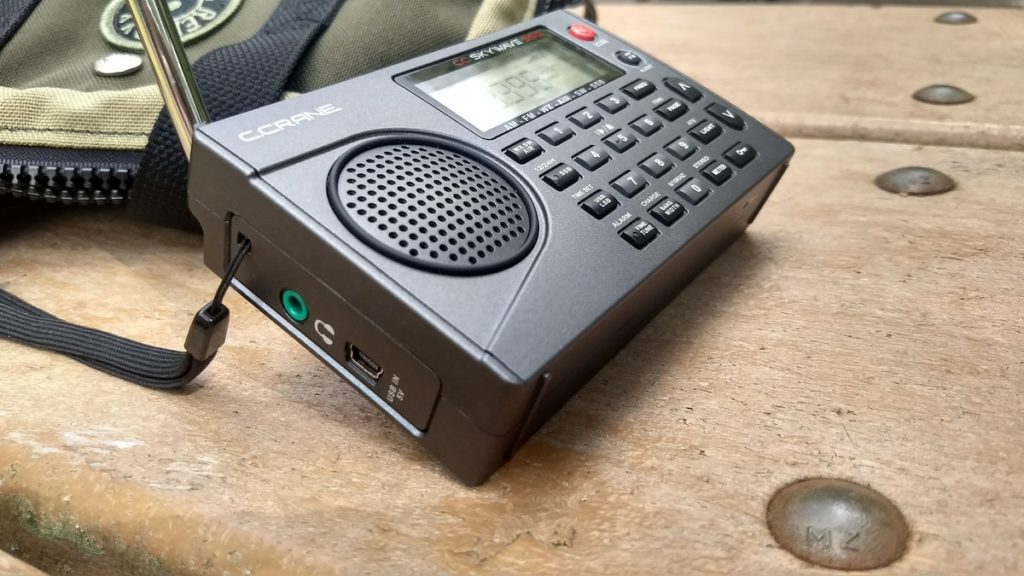 Many thanks to SWLing Post contributor and host of Underground Sounds, Kelsie, who writes:
Many thanks to SWLing Post contributor and host of Underground Sounds, Kelsie, who writes:
Why Shortwave?
by Kelsie
A question I’m regularly asked when talking about our radio show, and radio in general, is why choose independent radio rather than publishing a podcast or streaming playlist?
The answer is not a simple one, but I feel that it’s a powerful one.
Streaming services have made it far easier for new and independent artists to publish music, but publishing is only the first step in exposing new music to a potential audience. The age old problem faced by artists and publishers since the commercialization of music, remains – how does an artist or label get their new music heard?
The sad truth is that the vast majority of artists publishing their music on streaming services such as Spotify, Apple Music, or Tidal, etc., will not get what they’re really looking for, and that’s exposure.
Streaming services present content to their users based on a limited form of mathematical artificial intelligence known as an algorithm. Algorithms work by correlating searches by users with the content of their saved playlists. If users do not know that those new songs exist and have not searched specifically for them, the streaming algorithms will not have enough data on the new releases to suggest them to a wider audience who might like them. As a result of this, people who use streaming services are not exposed to a variety of musical styles and genres, unlike those of us who grew up when terrestrial radio was the dominant format.
While terrestrial radio may still be unencumbered by algorithm-generated playlists, commercial FM and satellite radio have effectively homogenized them over the years, resulting in a similar impact to musical variety. There was a time when radio stations used to allocate time slots for shows hosted by DJ’s that played different genres and styles of music on the same frequency. Since about 2010, the DJ format has become practically extinct.
Most radio stations today play a limited selection of songs and artists based on agreements with the traditional recording industry, resulting in very little variation from station to station at any given time of day. Both frequent listeners of FM or satellite radio can attest that the same songs and artists are played daily, even if they’re played in a different order, and even switching from one station to another during a song will oftentimes result in the listener hearing a different song by the same artist on the other station. This is only getting worse now that the majority of radio stations within the United States are owned by only two major corporations.
The lack of musical variety listeners are exposed to on commercial radio and streaming services lead me to the first part of my answer:
Independent radio is not subject to the homogeneity of commercial radio or streaming services.
This is largely due to the fact that instead of playlists or algorithms, independent stations are usually focused on the communities they serve, and tend to still produce individual shows tailored to different genres and interests. Tuning in at different times of the day exposes listeners to music they just wouldn’t have heard on other formats. Not everyone will like the same songs or artists, but there is usually something for everyone and a priceless opportunity to expand one’s musical horizons.
An explanation of this usually leads to the question, “OK, but why shortwave?”, or, “Isn’t shortwave dead?”
Here is where answer is is a little more complicated.
I’m sure, at least for myself, part of the decision to utilize shortwave broadcasting is based in the nostalgia of listening to broadcasts from all around the world as a child at the peak of the Cold War in Europe, hearing songs in languages I did not understand, often in keys and rhythms unfamiliar to a Western ear, and my particularly fond memories of listening to relays of Casey Kasem’s weekly Top 40 show from back home. As a former musician myself, and an avid shortwave listener who likes to restore vintage radio receivers, I still have almost that same level of excitement when I hear musical styles that I haven’t been exposed to before, and I want to share that with anyone in the world with an ear to listen.
This being said, the most important component of my answer comes down to accessibility.
Shortwave broadcasting is accessible. While independent radio may provide the only remaining viable format for exposing listeners to music from outside the corporate mainstream, independent shortwave radio potentially allows listeners from anywhere in the world to listen to music that they might be actively prevented from hearing in their own countries through various means, such as internet censorship or national broadcasters who only play what their governments mandate or allow.
As Geddy Lee from the band Rush used to sing, “One likes to believe in the freedom of music”.
I know that we certainly do, and I’m sure our opinion is shared by many of the fine music broadcasters on shortwave radio right now. From some of the more notable national broadcasters who pepper their broadcasts with music from their countries, to independent broadcasters such as Over The Horizon Radio, Alt Universe Top 40, VORW, Cruisin’ The Decades, Memphis Weirdos, Pop Shop Radio, Laser Hot Hits, This Is A Music Show, Texas Radio Shortwave, and many, many more who play music that terrestrial or satellite radio won’t play.
While shortwave radio is also going through somewhat of a renaissance right now, in large part due to the current dire situation in Eastern Europe, I think it’s more than that. I feel that large part of it is boredom and apathy with mainstream radio and the coldness of streaming services.
Whatever the reason, what better time than now to listen to shortwave stations from around the world, or even to become a part of the music broadcast resurgence yourselves?
CTV: “How shortwave radio is resurfacing as a tool in Ukraine”
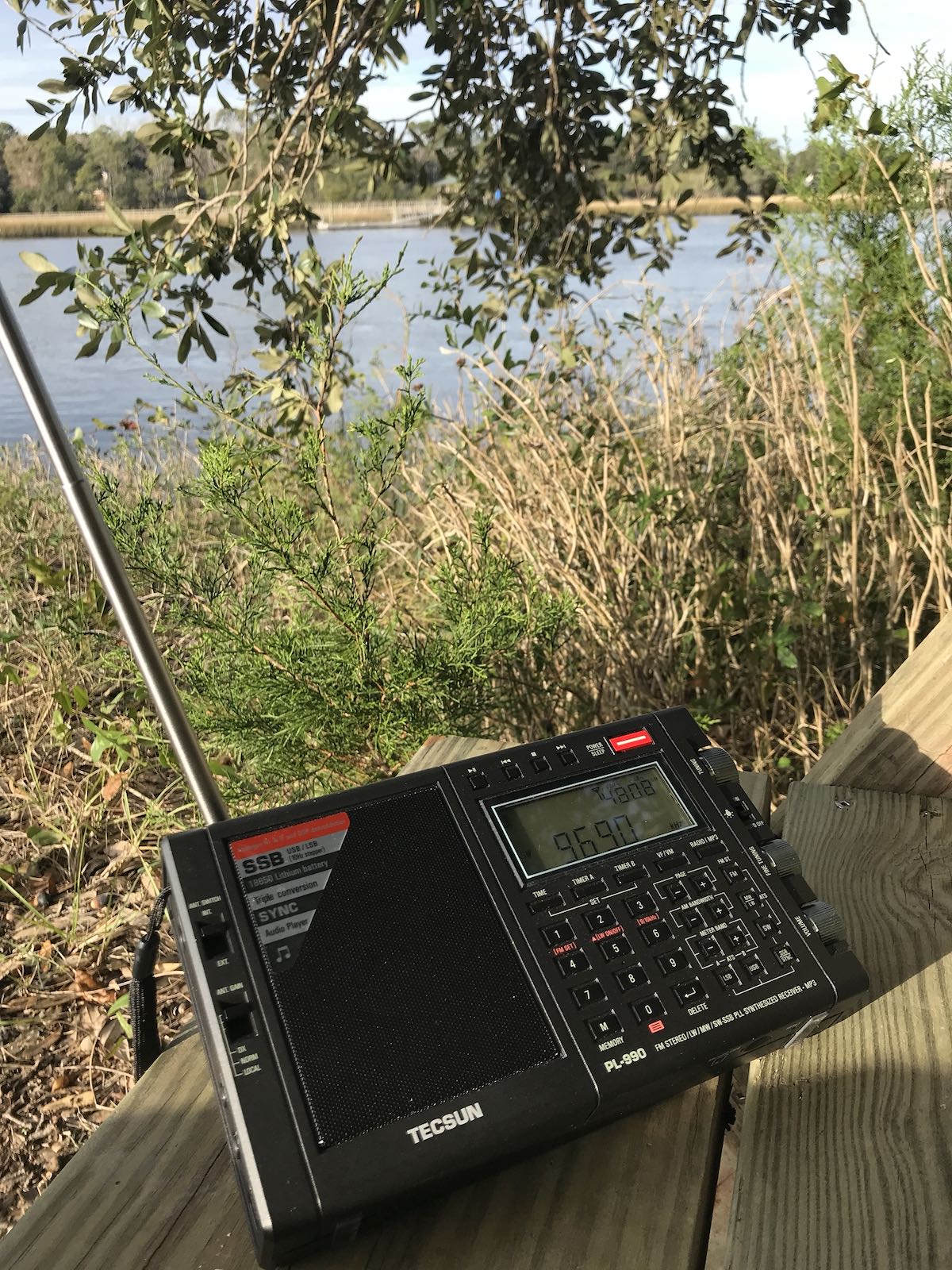 Many thanks to SWLing Post contributor, William Lee, who shares this story from CTV which focuses on the resurgence of interest in shortwave radio following the Russian invasion of Ukraine.
Many thanks to SWLing Post contributor, William Lee, who shares this story from CTV which focuses on the resurgence of interest in shortwave radio following the Russian invasion of Ukraine.
This item features our good friend, John Figliozzi; author of the Worldwide Listening Guide:
How shortwave radio is resurfacing as a tool in Ukraine (CTV)
In a world of mobile phones, satellites and the internet, some old school technology is making a major comeback. The shortwave radio, used by spies for decades to send encrypted messages, is being resurrected for the war in Ukraine.
According to Dr. Andrew Hammond, curator and historian at Washington, D.C.’s International Spy Museum, the shortwave radio “is a classic tool that was used for espionage.
“With a shortwave radio like this, you can transmit information over huge distances,” he told CTV National News.
But now, decades later, shortwave is coming back into use. [Continue reading…]
Everyone should have a shortwave radio
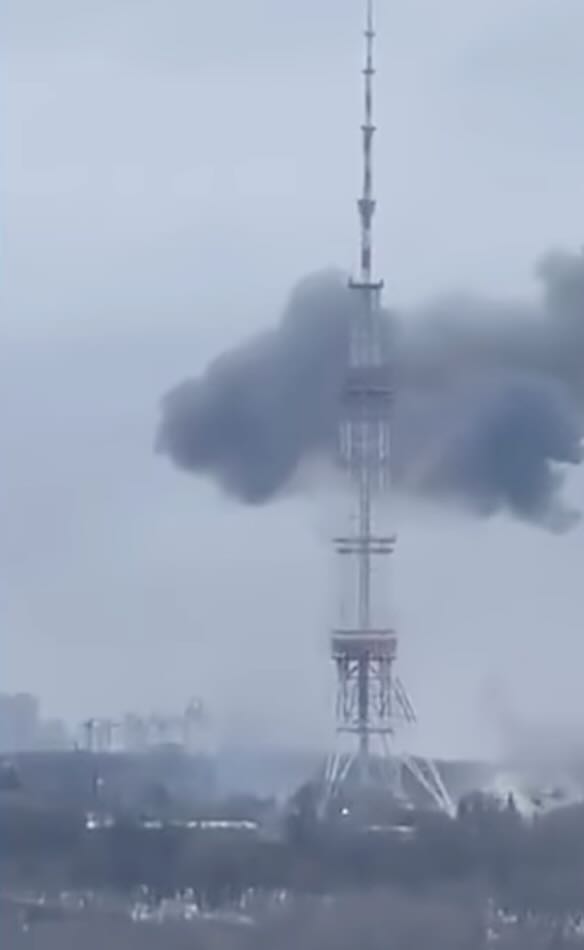
Screen shot taken from a nearby resident’s video showing missile attacks on Kiev TV tower (via YouTube)
There’s a reason why Russia disabled Kyiv’s TV tower with two missiles on the morning of March 1, 2022.
As Ukraine’s Defense minister was quoted in The Guardian: “Moscow aims to cut off communications to ‘break the resistance of the people’.”
One of the first things an invader tries to shut down is a country’s free press; traditionally, this has meant swift control of newspapers and radio. No surprise here–this is a standard part of an invader’s playbook.
These days, of course, this also includes TV and the Internet. So far, Russia’s attempts to completely cut off Internet in Ukraine hasn’t been successful, but it’s not from a lack of trying.
In fact, even within Russia social media platforms have been blocked or severely restricted to prevent the free-flow of information among its citizens. Russia has even shut down one of its oldest radio stations for not toeing the party line with Ukraine coverage.
Propaganda machines are most effective when there’s no competing sources of information.
Why shortwave radio?
Shortwave portables are accessible, affordable, and effective tools for circumventing censorship.
It’s sad that they aren’t as common as they were back in the Cold War. Most people under 40 years old have likely never used or even heard of shortwave. I mean, if so many today don’t realize that you can receive television over the air, how could we expect them to know what a shortwave radio is?
Unlike the Internet–robust and decentralized as it may be in some countries–shortwave radio can’t be controlled by any one ruler or easily shut down. Shortwave broadcasting infrastructure isn’t within reach of an invader without causing a serious international conflict.
In addition, radio listening is an amazingly covert and untraceable activity. With a good pair of earphones, you can listen to any station within range and no one will be the wiser. A radio can’t be confiscated and the owner’s listening history exported.
Smart phones, on the other hand, often have location services in play which leak user location information. Unless encryption is used, those in charge of internet services also have access to all communications that pass through the pipeline as well.
It’s not difficult for those in power to gain access to information that passes through the internet.
Don’t get me wrong: smart phones are amazing tools. They give the user access to news, social media, and instantaneous information that might help their ability to seek safety–but they require a little savvy if you don’t want to be tracked. They also need frequent recharging. Shortwave portables, on the other hand, will often last weeks if not months on one set of batteries. They allow you access to international news, and the vast majority can deliver local and regional news via FM and Mediumwave stations.
Most importantly, though? Shortwave radio is the ultimate free speech medium, as it has no regard for national borders, nor for whom is in power (or not in power) at any moment. Shortwave radio works everywhere on the planet; no matter how remote you are, you can still receive stations over shortwave.
So yeah. I think every family should have at least one shortwave radio. Especially when someone is actively trying to cut off your access to news and information.
Note to our friends in Ukraine:
The BBC has added two shortwave broadcasts to Ukraine on 5875 kHz from 8/10 UTC and on 15735 kHz from 2/4 UTC.
SWLing Post readers, please comment if you know of other new shortwave broadcasts to help those in Ukraine and Russia.
Guest Post: Why listen to shortwave radio?
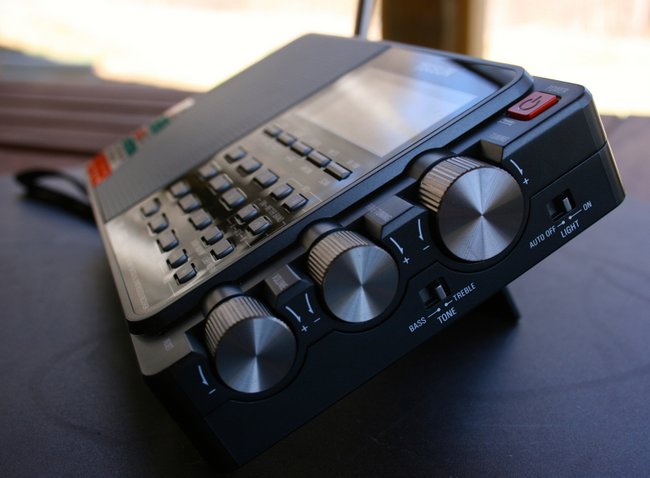 Many thanks to SWLing Post contributor, Jock Elliott, who shares the following guest post:
Many thanks to SWLing Post contributor, Jock Elliott, who shares the following guest post:
Why listen to shortwave radio?
By Jock Elliott, KB2GOM
Decades ago, an entrepreneur challenged his audience with a concept of critical importance: “Every once in a vhile, it is important to ask ourselves vhy are we in business?” He had a waaay cool Austrian accent, and his point was valid: every once in a while, we should examine our fundamentals.
So why, indeed, listen to shortwave radio?
For me, the short answer is: because there are treasures out there on the shortwave spectrum, that’s why. Further, with a relatively inexpensive shortwave receiver (even better if you have a receiver with single-sideband – SSB – capability), you hear them too. You can discover things that you are unlikely to find anywhere else, and not only are they fun to hear, they are also fun to find.
So let me present for your approval a shortwave journey that I took on October 24, 2021.
1115Z – It all starts when I am flipping through my old shortwave reference materials, and a copy of a page from Popular Communications magazine, April, 1986, catches my eye: “Handy Ute Finder by Hubble Gardiner, KNE0JX.” Utes are utility stations (as opposed to hams or international broadcasters), like ships at sea, planes in the air, and fixed commercial and military stations, and the like. The article presented places to look in the HF radio spectrum between 4000 kHz and 26960 kHz, for utility stations transmitting in SSB, CW, and RTTY/ARQ modes. Is this chart still valid? I don’t know, but since I enjoy hearing people doing their jobs on the air, why not start tuning from 4000 kHz in upper sideband and see what I can hear? Freeing the Tecsun PL-880 from its case, I extend the antenna, press the power button, punch in 4000 kHz, and start turning the dial. And while my initial impulse was to discover some “utes,” I am open to whatever comes through the headphones.
1128Z, 4426 kHz USB – a ute, super loud and clear, a weather forecast from the US Coast Guard Communications Command, including a forecast of tropical weather from the National Hurricane Center. If I were a mariner, I would be pleased to hear this forecast.
Duties call, and my cruise of the bands is interrupted, to be continued later in the day . . .
2130Z, 7490 kHz AM, — highly unusual music that sounds like a mash-up between 1930s movie music and oompah bands. It’s odd but pleasant and certainly not anything you are going to hear on the “regular” broadcast stations. Turns out it is a program called Marion’s Attic on WBCQ from Monticello, Maine. Two females, Marion (with a high squeaky voice) and Christine, play recordings from yesteryear (including wax cylinders, I think). Evidently, this program has been on the air for 22 years, and it made me smile.
2150Z, 8950 kHz USB, — a ute, European weather conditions for aviators from Shannon VOLMET, Ireland, very difficult to hear on the PL880’s whip antenna, but fully copyable on my Satellit 800 with wire antenna. How cool to hear weather from all the way across the pond!
2206Z, 9350 kHz AM, (back on the PL880) — USA Radio News on WWCR, then Owen Shroyer and a Dr. Bartlett discussing the problem of a hospital in Texas apparently putting plastic bags on the heads of covid patients. Unusual, I think, but I had heard enough about the virus of late and continue to rotate the tuning knob.
2215Z, 9395 kHz AM, — My ears are tickled by cool jazz, a very together group, laying it down with style. “This is cool jazz, jazz from the left coast,” the announcer intones as he cues up another group. It’s WRMI, transmitting from Okeechobee. Hearing it, I flashed back to “The Hawthorn Den, Jazz after Midnight” Saturday nights, listening under the covers when I was a kid.
2226Z, 9830 kHz, Voice of Turkey, in English — A professor presents an analysis of the United Nations, which he thinks needs to be reformed due to the shifting of the axes of power. This is followed by exotic music with nice female singer.
2239Z, 9955 kHz,WRMI, — Glen Hauser hosts The World of Radio, detailing the status of various shortwave stations around the world. Fascinating stuff and well worth the time.
2257Z, 10051 kHz USB, — a ute, weather for aviators again, but this time from Gander, Newfoundland. Makes me glad to be in a nice warm house.
So that’s what a little over an hour of turning the knob yielded, and that’s why to listen to shortwave radio: because you never know what you may encounter. Who knows what you might discover with a shortwave radio and a little wandering around?
Remember what Gandalf said: “Not all who wander are lost.”
An HF “Renaissance”: Militaries reinvests in shortwave communications
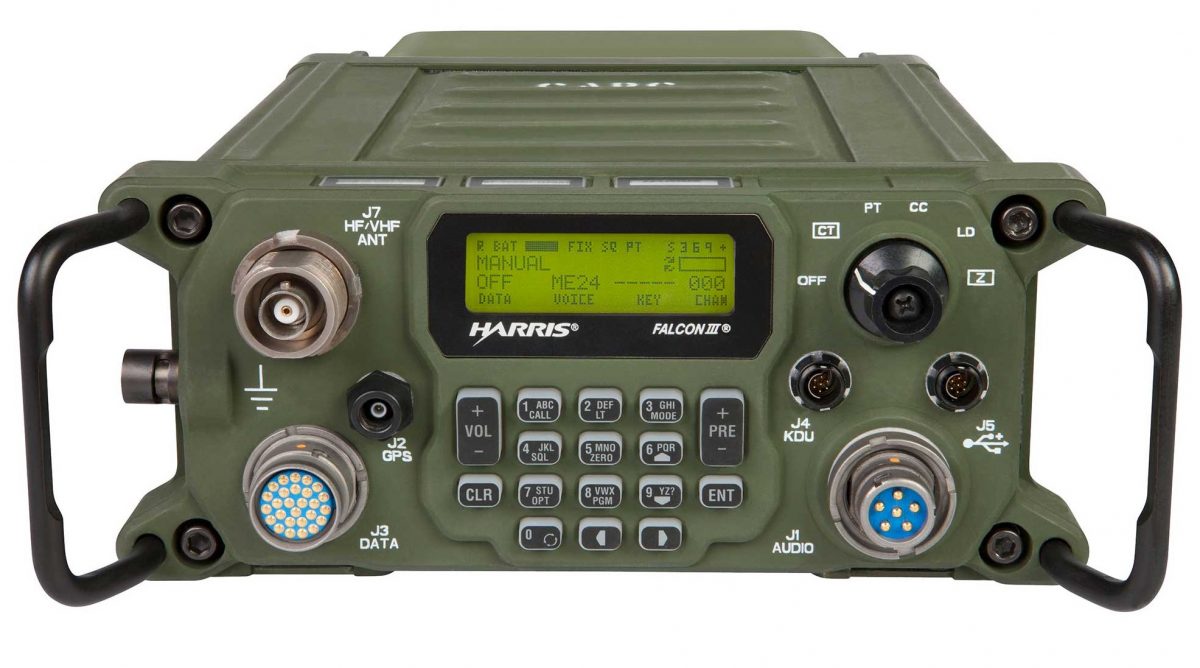 Many thanks to SWLing Post contributors Michael Guerin and Dennis Dura who share the following story from C4ISR.net (my comments follow excerpt):
Many thanks to SWLing Post contributors Michael Guerin and Dennis Dura who share the following story from C4ISR.net (my comments follow excerpt):
LONDON — Special operations commands across Europe are ramping up their capabilities with high-frequency communications to ensure connectivity on the battlefield. Leaders there are turning to high frequency communications as a way to optimize properties that provide a low probability of interception and detection.
Special forces in France, Germany, Poland and Ukraine continue to receive high-frequency, or HF, systems as a way to diversify communications plans, industry sources confirmed to C4ISRNET.
Some special operations organizations have selected L3Harris’ AN/PRC-160(V), industry sources said.
Enhancements in HF come at a time when NATO members and partner forces are suffering from a disruption of satellite communications, particularly along the alliance’s eastern flank where Russian armed forces continue to conduct electronic warfare.
In an online presentation to the Association of Old Crows on Aug. 6, Paul Denisowski, product management engineer at Rohde and Schwarz North America, described how communications satellites are vulnerable to antisatellite systems as well as ground-, air- and space-based “kill vehicles.”
“China, Russia and the U.S. have all carried out ASAT tests and many other countries are developing ASAT capabilities,” Denisowski said, using an acronym for anti-satellite. To boost resilience, some commands are turning to high-frequency communications.
During the presentations “Lost Art of HF” and the “Rebirth of Shortwave in a Digital World,” Denisowski explained that HF is making a comeback in local and global communications. This renaissance comes as the result of improvements in a range of fields, including antenna design, digital modulation schemes and improved understanding of propagation.
The market is also helped by reductions in size, weight and power requirements as well as the introduction of wideband data, enhanced encryption algorithms and interoperability with legacy HF sets, he said.
“This means end users are now benefiting from easier-to-use and cheaper solutions featuring improved data performance, audio quality, availability and operation. And because of a lack of infrastructure, HF is less expensive and relatively robust, although solar events may temporarily disrupt HF communications,” he said. Specific upgrades include “Adaptive HF,” which comprises automatic selection of frequency and the establishment of communication through automatic link establishment, or ALE, technology.
The latest technology of its type — 4G ALE — is capable of supporting wideband HF communications, or WBHF for short, providing end users with the ability to “negotiate bandwidth, modulation type, error correction and the number of sub-carriers,” Denisowski explained.
“ALE selects frequencies using link quality analysis, which allows it to listen and determine if a channel is in use and adapt if conditions change,” he said.
He added that HF can now support data rates up to 240 kilobytes per second on a 48-kilohertz channel, particularly useful for more robust communications in hostile environments.
“WBHF has already [been] used in military trials. It’s a technology which is most definitely here and now,” Denisowski said.
[…]The report explained how the U.S. Army and European NATO partners explored such scenarios during a series of joint exercises in 2019 and 2020. “A new need arrives for alternative communication skills, justified through the increasing vulnerability from SATCOM jamming as well as the potential failure of SATCOM as a result of attacks on spacecraft or through the use of anti-satellite surface-to-air missiles,” the report’s author, Jan Pätzold, told C4ISRNET. “The development of alternative skills is important to reduce dependence on SATCOM.”
According to Pätzold, so-called Skywave HF, which bounces signals off the ionosphere, enables beyond line-of-sight communications across “thousands of kilometers” without requirements. HF communications is also ideally suited to supporting local network coverage. “This offers advantages over SATCOM in urban areas, but also in mountainous areas or far north latitudes where no line of sight to existing satellites is possible,” Pätzold said
Click here to read the full story at C4ISR.net.
My comment: What’s old is new again
As I’ve said in previous posts:
The shortwaves–which is to say, the high-frequency portion of the radio spectrum–will never disappear, even though international broadcasters may eventually fade into history. I often think of the shortwave spectrum as a global resource that will always be here, even if we humans are not. But on a brighter note, I expect the shortwave spectrum will be used for centuries to come, as we implement various technologies that find ways to make use of the medium.
HF communications require so little infrastructure to be effective. It’s a global communications medium that carries messages and data at the speed of light with no regard for national borders. Sure, there are reliability issues with HF propagation, but even amateur radio enthusiasts employ weak-signal digital modes that almost seem to defy propagation. I’m certain with the backing of the military, even more robust digital modes will be used (above and beyond ALE).
Even the business world sees opportunity. Case in point: we’ve seen stock traders set up point-to-point HF communications to edge out their competitors who rely on fiber optics.
HF systems are more durable and easier to harden to endure times of intense space weather events that affect our sat networks as well.
But then again, I’m preaching to the choir.

